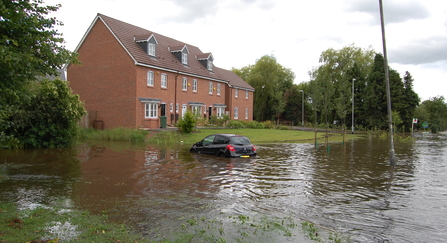BBOWT is one of the partners delivering Open University’s Floodplain Meadows Partnership, which has won a substantial grant from Ecover to help restore and protect 50 hectares of floodplain meadows along the banks of the River Thames in Oxfordshire.
The team, which includes scientists from the OU and partners Long Mead Local Wildlife Site, will work with local landowners to restore one of the most important areas for floodplain meadows in the country.


